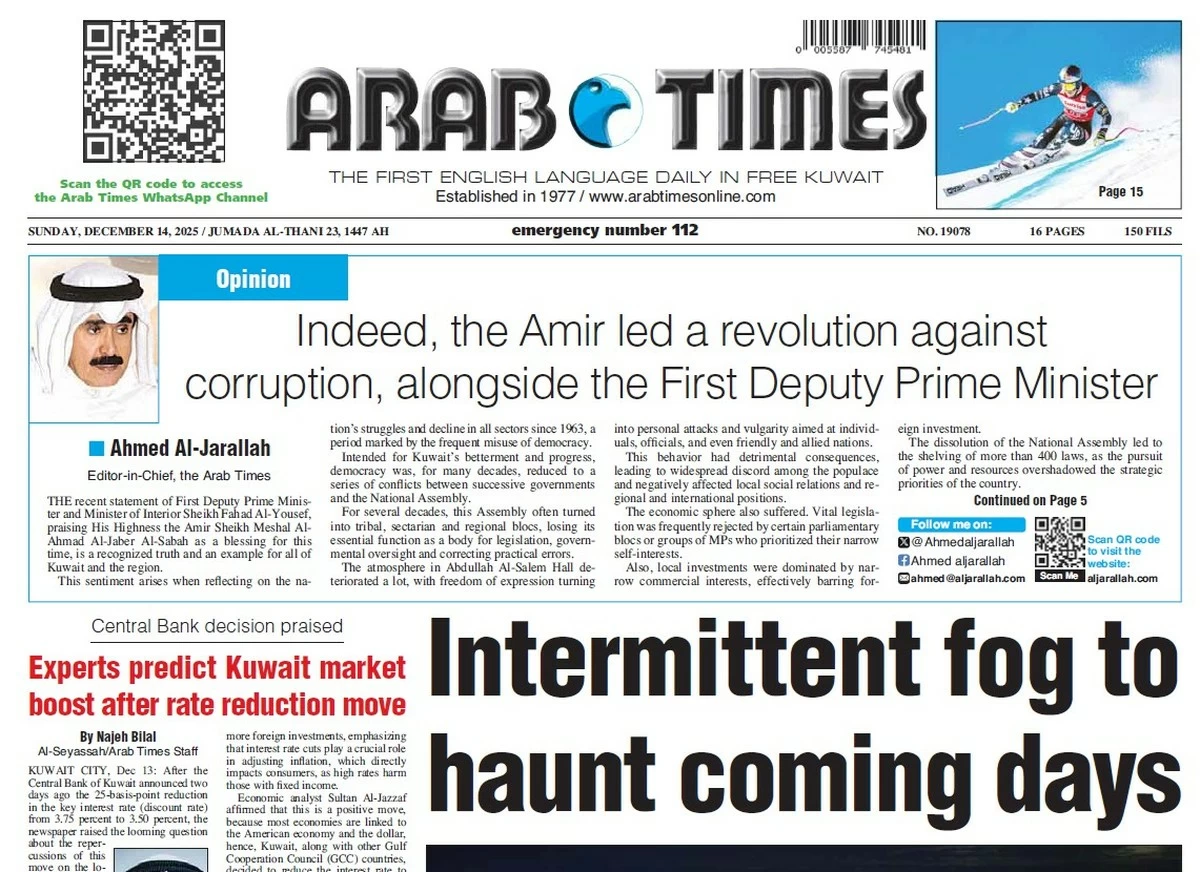04/11/2024
04/11/2024

KUWAIT CITY, Nov 4: Abdullah Al-Ajmi, the Acting Chairman of the Communications and Information Technology Regulatory Authority (CITRA), emphasized on Sunday that the development of integrated and comprehensive government services significantly reduces effort and costs for government agencies and the state budget. He made these remarks during the opening of the 11th e-Government Forum, themed "Digital Government and Integrated Services Strategy," which is being held over three days and features participation from various government agencies and the private sector.
In his speech, delivered on behalf of Minister of State for Communications Affairs Omar Al-Omar, Al-Ajmi highlighted that this development aims to provide better services to citizens and residents while enhancing the capabilities of government agencies and the state as a whole for sustainable and more effective planning. He noted that this progress will positively impact the state's use of financial and human resources, thereby improving its competitive position among neighboring countries and globally.
Al-Ajmi also underscored the vital role of CITRA in regulating the communications and information technology sector in Kuwait, stating that these sectors are key drivers for the advancement of electronic services stemming from digital transformation strategies. He pointed out that the communications sector is responsible for providing the necessary infrastructure for these services, announcing the experimental launch of the advanced fifth-generation network (5G Advance) and the "Kashif" service, which reveals the caller's identity before answering, thus helping to reduce fraudulent calls. This service is designed specifically for official entities, companies, and institutions, rather than individuals.
Bader Al-Salman, Chairman of the Union of Kuwaiti Engineering Offices and Consulting Houses, echoed similar sentiments in his address, stating that the forum serves as a crucial platform for accessing government services that enable comprehensive automation and broad integration across all government agencies. He suggested that the current phase will eliminate the need for institutions and individuals to rely on manual processes or visit government centers to exchange information, inquire about procedures, or complete documents. Al-Salman expressed confidence that this transition would enhance productivity and efficiency, ultimately saving costs and time for the state, institutions, and individuals alike.
He also acknowledged the tremendous capabilities offered by artificial intelligence, alongside the expertise possessed by the private sector and academics, in developing educational programs. This will ensure that solutions are integrated and compatible with international standards for protecting information assets and maintaining the privacy of citizens and residents, all within the framework of good governance.
Fatima Al-Qallaf, Head of the Partnerships and Events Department at the Central Agency for Information Technology, reiterated that the integration of electronic services signifies a phase of responsiveness to challenges. She explained that the forum's theme reflects the government's commitment to advancing integration in procedures. Al-Qallaf emphasized that the real benefits of developing the e-government system over recent years lie in moving towards a future of greater confidence, enabling Kuwait to enhance its position among neighboring countries and the global community while providing society with the integrated and advanced electronic services it deserves.
She further stated that the state is committed to implementing suitable development plans efficiently and effectively, utilizing all available financial and human resources. Al-Qallaf also highlighted the "Sahel" application developed by the Central Agency for Information Technology, which facilitates the path toward creating integrated automated government services. (KUNA)


